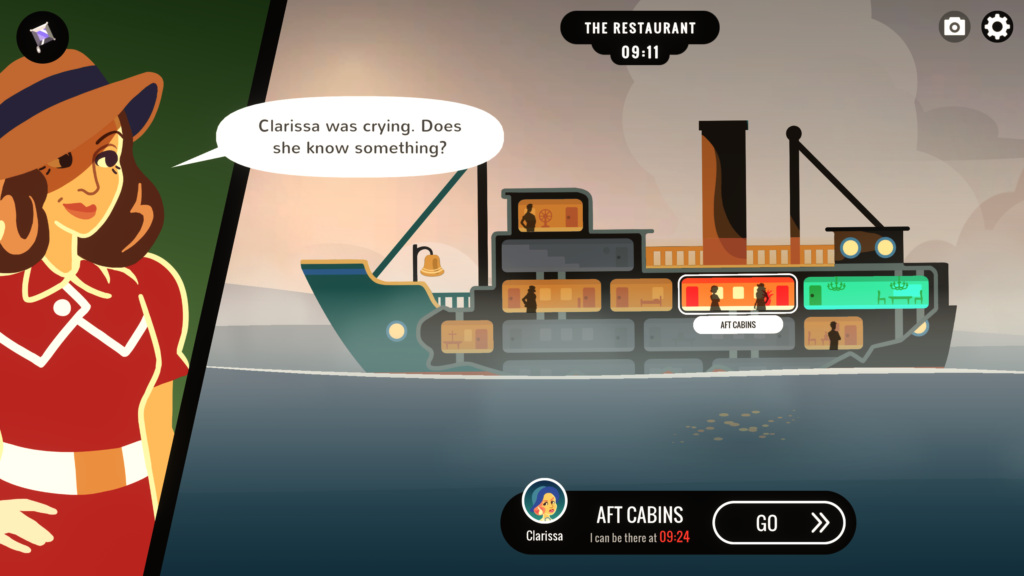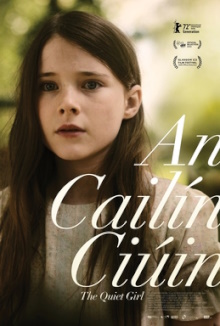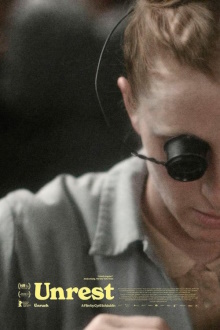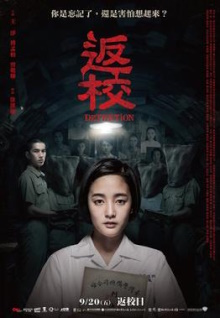Like its title, this is a quiet, low-key film that breaks no new ground but is well made and its story so sweet that it’s impossible to dislike. It was adapted from a short story Foster by well known Irish writer Claire Keegan, and is the directorial debut of Colm Bairéad. But really it is child actress Catherine Clinch who carries the film. This is also notable in that it’s mostly in the Irish language and so most people will need subtitles for it. Yet the lines of English that it has are delivered in such a thick accent that you’d likely need subtitles for them too!
Continue reading The Quiet Girl (2022)All posts by Wan Kong Yew
Science Articles (November 2023)
A few interesting bits of news this month but nothing truly groundbreaking. I am happy that there are articles from different fields though.
- The first one delves into the currently hot field of AI and it’s actually about two things. On one level, it’s about training neural networks to make predictions about rogue waves, monster-sized waves that are much larger than expected. One another level, it’s about making the model comprehensible to humans instead of being a black box. This involved taking the particular neural network that produced the most accurate predictions, then using a separate algorithm to generate equations that match its results as closely as possible based on the variables that it uses. So this is not only a practical method of predicting rogue waves but also represents a novel way to make sense of the results of neural networks.
- Next is an announcement of very promising results from a project to stop the spread of dengue by infecting mosquitoes with the Wolbachia bacteria. Such mosquitoes are known to have a reduced ability to spread disease and indeed studies of areas where these special mosquitoes have been released in Colombia show reductions of dengue infections of up to 97%. There are concerns about how safe this is, that it’s expensive and that the pathogens may in time find ways to adapt to the Wolbachia dengue but this is still good news.
- The next article is somewhat similar in that it’s as much about the general approach as the specific results. The broader problem is how do you carry out placebo-controlled trials of substances whose effects patients are aware of if they are present. The substance in question here is ketamine which is thought to have antidepressive properties, yet its psychoactive effects makes it impossible for those dosed to be unaware of it. This experiment therefore involved patients who were undergoing routine surgery. Under the effects of anesthesia, they were given either ketamine or a saline placebo and being unconscious, would not have been aware of the difference. The outcome was assessed during follow-up visits. Unfortunately they found that the ketamine had no greater effect than the placebo in reducing the severity of depressive symptoms but their approach at least is novel.
- Finally, here’s an economics paper that is sure to generate a great deal of follow-up discussion. It challenges the conventional view that income inequality in the US has gone up over time. The claim here is that such views are based on estimates of income shares that are derived from individual tax returns. However this leaves out government transfers, changes in social conditions and demographics. College education for example raises lifetime income but delays entry into the labor market. Adjusting for all these factors, the author claims that real incomes have risen over time for all income groups and there has been little change in the share of income that goes to the richest. The author works for the US Treasury Department so the claims here aren’t so easily dismissed.
Unrueh (2022)
This is like only the second Swiss film I’ve written about here and it’s a very idiosyncratic one even by the standards of the films I watch. There’s no real plot as it’s almost purely exposition, portraying the way of life in the Saint-Imier valley in Switzerland in the late 19th-century. There are two distinctive elements here: the watchmaking industry that dominates the economy and the strength of the anarchist political movement among the residents. It’s an odd juxtaposition, made especially so by the film’s obsession with measurements of time, distance and money. Director Cyril Schäublin’s sympathy for the anarchists is obvious but I’m not quite sure what to make of the rest of it even as it continues to fascinate and engross me.
Continue reading Unrueh (2022)Argentina, 1985 (2022)
So it’s two politics heavy films this week and unlike Detention, this one is completely serious and actually worthy of its subject matter. It covers the so-called Trial of the Juntas in 1985 when Argentina put on trial the leaders of the military dictatorship that controlled the country from 1976 to 1983. It’s superbly crafted and seems to have been deliberately patterned after the best known political thrillers with a strong American influence. The only downside is that you keep waiting for the other shoe to drop, for something truly awful to happen, and I suppose this film is too faithful to the real events to invent something so dramatic as that. What’s most inspiring to me is that this was the most watched Argentine film in its year of release, no mean feat for a legal drama that goes on for almost two and a half hours.
Continue reading Argentina, 1985 (2022)Overboard!

As I’ve mentioned before, I simply adore the text-based storytelling games by Inkle and so just had to get this one. Unfortunately, while Heaven’s Vault had the problem of being too long and too ambitious, this one has the opposite problem of being far too short and too simple. You can be done with pretty much all the content in a couple of hours and even a simple first win will take no more than an hour. I do like the premise but there’s just too little content and the production values are somewhat lackluster as well.
Continue reading Overboard!Detention (2019)
This seems to have been a commercially successful film and the directorial debut of John Tsu. Its source material is a horror video game by a Taiwanese director and its premise is undoubtedly strong, being about students and teachers living during Taiwan’s White Terror period. Telling a story about political repression within the horror genre seems at first like a stroke of genius. But then it quickly becomes obvious why this is rarely attempted. The real event is such a weighty tragedy that the supernatural elements cannot help but feel farcical in comparison. Then there’s how the director plays up the horror imagery so blatantly, perhaps in order to be faithful to the video game, when a lighter touch would have been more effective. I really wanted to like this, but it’s much of a mixed bag to be considered actually good.
Continue reading Detention (2019)Man of the West (1958)
In so many of the Westerns he appeared in, Gary Cooper feels like he’s playing the same character and that’s the case here as well. Even though here he is a former outlaw who is forced to confront his old gang, the inner conflict and moral quandary are much the same as if he were the sheriff. This isn’t to say that it isn’t good because it is in fact a very solid Western. But it’s also a completely straight and stereotypical Western and its finale is a little underwhelming. I can see why it’s a classic of the genre but it’s not for me.
Continue reading Man of the West (1958)



